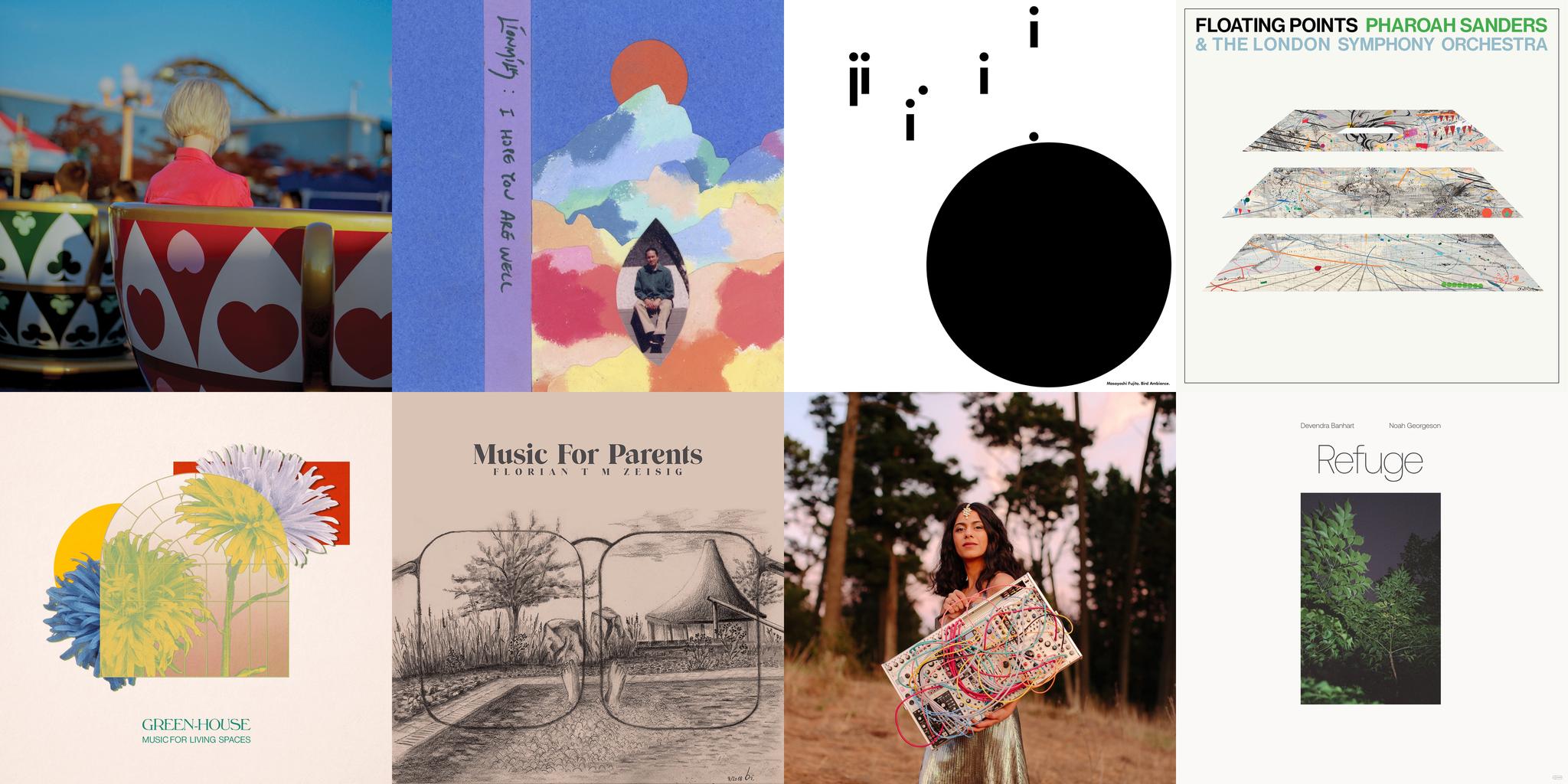
PopMatters' 11 Best Ambient Albums of 2021
Studies have shown how the global pandemic has changed our listening habits, and for those seeking calm, these 11 are the best ambient albums of the year.
Source


_ Lionmilk's I Hope You Are Well meditation is 57 minutes of souljazz ambient therapy from LA native pianist and producer Moki Kawaguchi. _ Originally, this album was home-dubbed cassette-only music selectively dropped in mailboxes of close friends & family who may have been struggling with anxiety & depression during early 2020 pandemic shutdown. In late 2020, Leaving Records teamed with Lionmilk to officially release.


The jazz great Pharoah Sanders was sitting in a car in 2015 when by chance he heard Floating Points’ *Elaenia*, a bewitching set of flickering synthesizer etudes. Sanders, born in 1940, declared that he would like to meet the album’s creator, aka the British electronic musician Sam Shepherd, 46 years his junior. *Promises*, the fruit of their eventual collaboration, represents a quietly gripping meeting of the two minds. Composed by Shepherd and performed upon a dozen keyboard instruments, plus the strings of the London Symphony Orchestra, *Promises* is nevertheless primarily a showcase for Sanders’ horn. In the ’60s, Sanders could blow as fiercely as any of his avant-garde brethren, but *Promises* catches him in a tender, lyrical mode. The mood is wistful and elegiac; early on, there’s a fleeting nod to “People Make the World Go Round,” a doleful 1971 song by The Stylistics, and throughout, Sanders’ playing has more in keeping with the expressiveness of R&B than the mountain-scaling acrobatics of free jazz. His tone is transcendent; his quietest moments have a gently raspy quality that bristles with harmonics. Billed as “a continuous piece of music in nine movements,” *Promises* takes the form of one long extended fantasia. Toward the middle, it swells to an ecstatic climax that’s reminiscent of Alice Coltrane’s spiritual-jazz epics, but for the most part, it is minimalist in form and measured in tone; Shepherd restrains himself to a searching seven-note phrase that repeats as naturally as deep breathing for almost the full 46-minute expanse of the piece. For long stretches you could be forgiven for forgetting that this is a Floating Points project at all; there’s very little that’s overtly electronic about it, save for the occasional curlicue of analog synth. Ultimately, the music’s abiding stillness leads to a profound atmosphere of spiritual questing—one that makes the final coda, following more than a minute of silence at the end, feel all the more rewarding.






